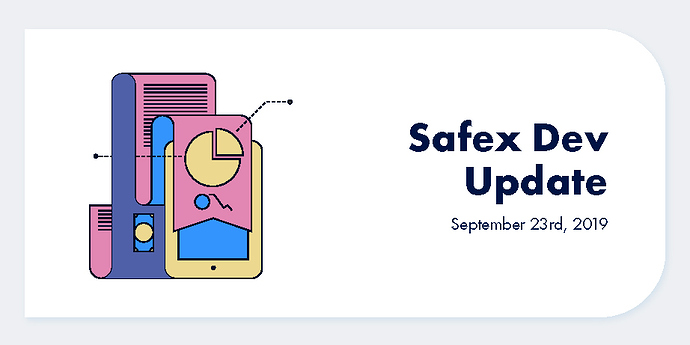Marketplace
During the last week Marko had created the sell offer definition, which is the start of the methods for the blockchain to list items which others can buy. It is instantiated with the first part of the offer object which Daniel had proposed the week before.
Also we have been onboarding additional developers to the core of the project during the last week. One of whom has been actively studying the codebase and ecosystem for six weeks prior.
Furthermore, last week Marko linked up the token locking as part of the account registration to the codebase and added additional states to handle errors.
enum class execution_status
{
ok = 0,
invalid = 1,
wrong_input_params = 2,
error_wrong_input_params = 10,
error_account_data_too_big = 11,
error_account_already_exists = 12,
error_invalid_account_name = 13,
error_account_non_existent = 14
};
Sails Wallet
Last week Mirjana started to refactor the code she has already written. During testing the speed of the wallet loading was slower than excepted. There are some redundant network calls that cause the wallet to take more time than it needs to when loading. These are being addressed in the refactor.
Also some architectural adjustments are being made to the way the application works by introducing some additional frameworks that will also help in optimizing the performance of the application.
This week we will be getting into the Bitcoin and Migration part of the application. We expect this week to merge these aspects ahead of integrating the marketplace features that will interface with the world marketplace router.
Edoardo continued with the refactoring of the go lang rpc. He continues to add logging where ever necessary to have a full view on any hiccups from the wild which will allow us to address the issues with a better understanding on what the problems are: such as in the case of the blue screen issue, since the module we used did not include proper logging we were not able to successfully diagnose the issue. Luckily we have a new and well made module in go lang.
Remaining tasks are related to transaction history: to have an in depth view served to the GUI once they (the transactions) had been parsed from a block.
Migration
On September 21 was the previous migration script run: ~13 million safex tokens were migrated on that run.
The next scheduled migration script will be executed on October 4, 2019.
Sincerely,
The Safex Development Community

